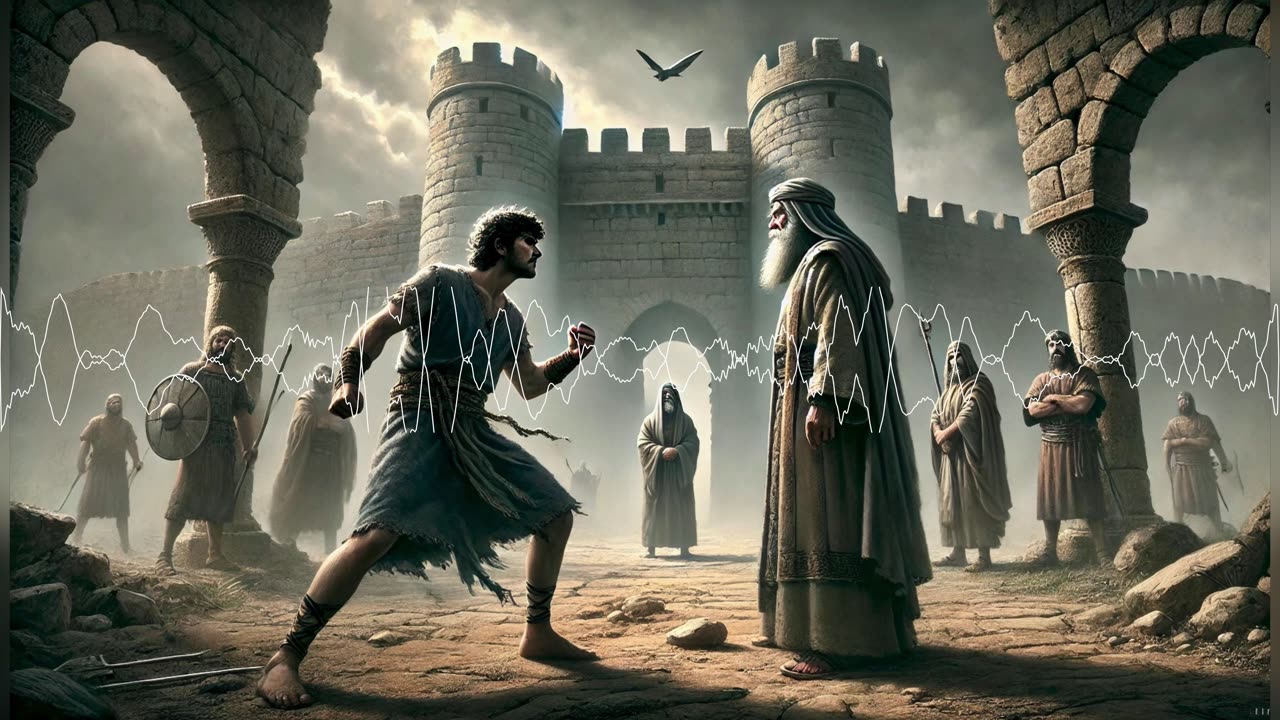Premium Only Content

The Fall of Abner and the Unfolding of Daud’s Reign
In 2 Samuel 3, we witness the tumultuous transition of power from Saul's house to Daud. Abner, the commander of Saul’s army, seeks to make peace with Daud after a fallout with Ish-bosheth over the accusation of taking Saul's concubine. Daud, eager to unite the kingdom, accepts Abner’s offer of peace. However, Joab, driven by a desire to avenge his brother Asahel’s death at Abner's hand, murders Abner, disrupting the peace process. Daud mourns Abner’s death and distances himself from the act, emphasizing that he had no part in the murder, as the power struggle between Saul's house and Daud's reign intensifies.
This chapter highlights how political and personal motives can intertwine, and how even in the midst of Yahuah's plans, human vengeance and emotions complicate the fulfillment of divine will.
Cross-Reference to Yahusha :
* Yahusha as the True King:
The conflict over who would rule Israel—whether it be Ish-bosheth from Saul's house or Daud, Yahuah's anointed—parallels the tension seen in the New Testament between earthly powers and Yahusha as the true spiritual King. In John 18:36, Yahusha tells Pilate, “My kingdom is not of this world.” Similarly, while Daud's kingship was established by Yahuah, human power struggles delayed his reign, much like how Yahusha’s spiritual reign was misunderstood by many who sought an earthly king.
* Vengeance and Justice:
Joab’s desire for vengeance over his brother’s death at Abner’s hands mirrors human tendencies to seek personal retribution. However, Yahusha teaches a different path: “Do not repay evil for evil” (Romans 12:17-19), and instead, to “leave room for Yahuah’s wrath.” This principle highlights how Yahusha’s approach to justice is rooted in patience and divine timing, rather than immediate personal revenge, a lesson that contrasts Joab’s actions in this chapter.
-
 LIVE
LIVE
Wendy Bell Radio
4 hours agoDOGE Just Ended The Deep State
11,310 watching -
 LIVE
LIVE
BonginoReport
1 hour agoMedia Exposed as Government-Funded Propaganda Machine (Ep.134) - 02/06/2025
12,196 watching -
 LIVE
LIVE
Vigilant News Network
14 hours agoThe Most Devastating COVID Jab Report So Far | The Daily Dose
1,012 watching -
 1:29:45
1:29:45
Game On!
15 hours ago $1.44 earnedPresident Trump makes NFL HISTORY! Make the Super Bowl Great Again!
5.99K2 -
 9:17
9:17
Dr. Nick Zyrowski
1 day ago4 Steps To Lose Fat Naturally Without Exercise
18.1K4 -
 13:10
13:10
This Bahamian Gyal
14 hours agoLooking For A Job in 2025: 10 RED FLAGS To Watch Out For
9.53K5 -
 17:41
17:41
IsaacButterfield
1 day ago $1.36 earnedInsane Woke TikTok Returns Crazier Than Ever!!
7.59K11 -
 8:21
8:21
Mally_Mouse
12 hours agoPresident Trump - Week #2
5.91K13 -
 5:23
5:23
BIG NEM
13 hours agoWhat Is Jollof Rice? West Africans Explain the Magic Behind It!
4.48K5 -
 59:37
59:37
Trumpet Daily
21 hours ago $5.22 earnedTrump Turns Two Weeks Into Two Years’ Worth of Action - Trumpet Daily | Feb. 5, 2025
23.8K54